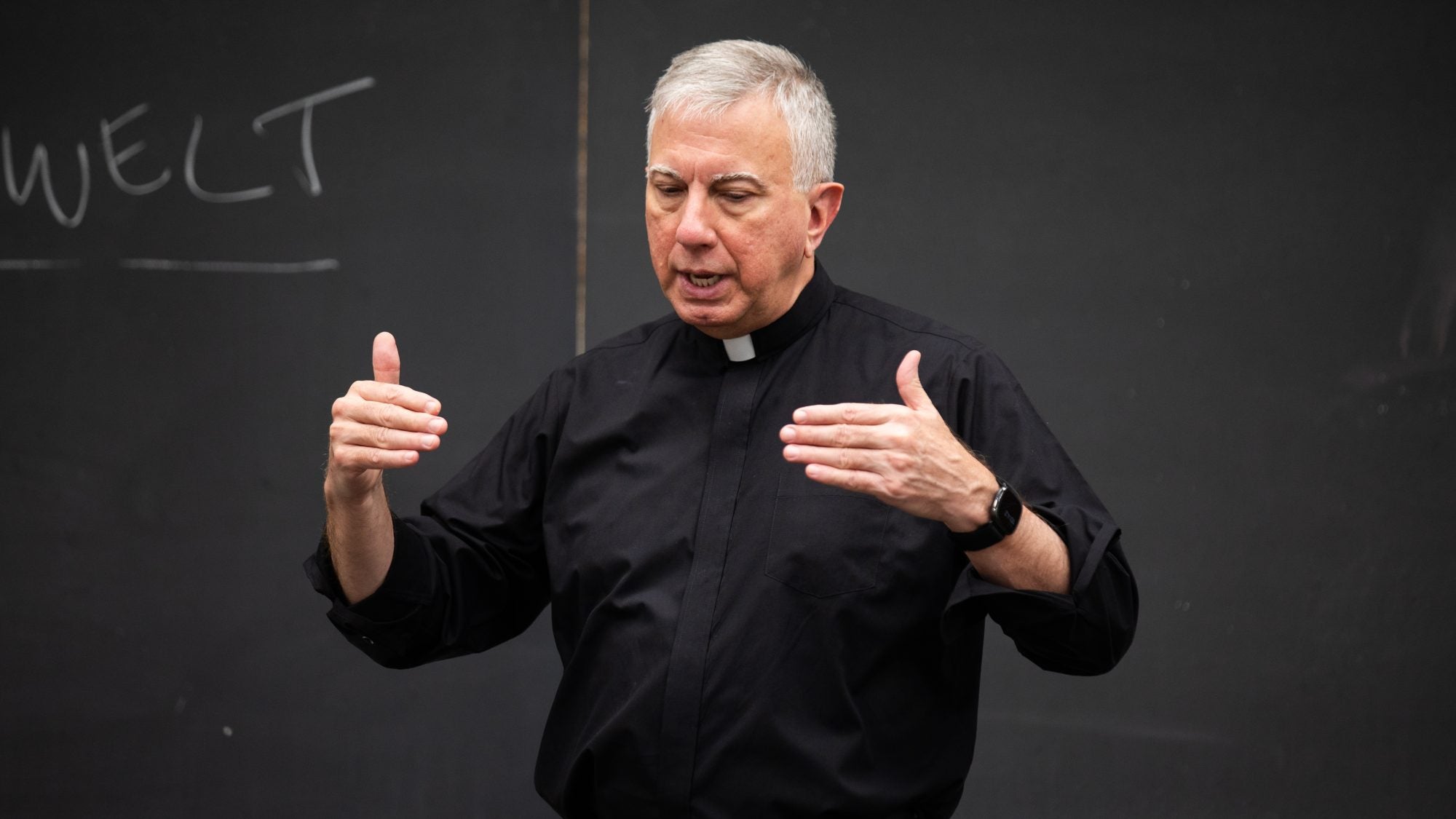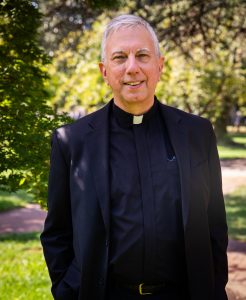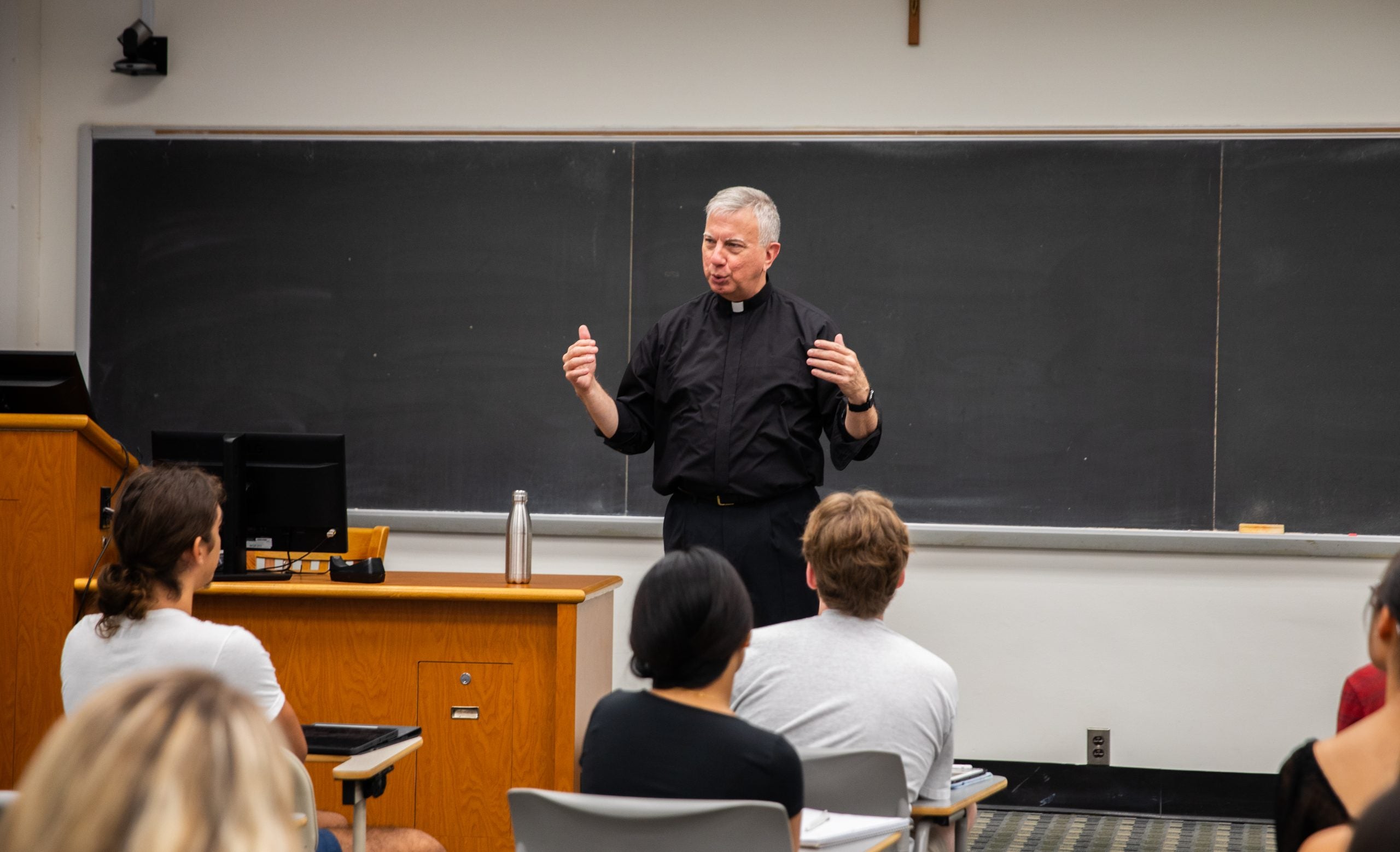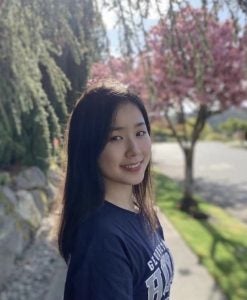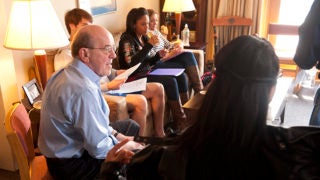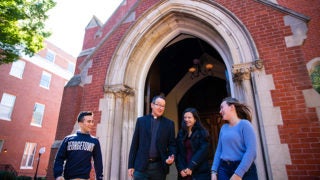Most college students have to take required courses in mathematics and the humanities their first year. At the nation’s oldest Catholic, Jesuit university, Hoyas have an additional requirement: Georgetown’s signature course, The Problem of God.
In the 50+ years it’s been taught, almost 100,000 Georgetown students have taken the course, which encourages undergraduates to practice Georgetown’s value of interreligious understanding and critically examine the religious dimension of human nature and reflect on their own experience with religion.
Across its history, nearly 3,000 sections of the course have been taught. And each section of the course is distinct. Currently taught by 24 professors this fall semester, the Problem of God leans into each faculty member’s specific disciplines to bring unique perspectives to the course.
“The different sections of The Problem of God are as diverse as our faculty. They range from Christian, Jewish and Islamic statements of faith and doubt, to courses on the goddess in world religions and from theology to psychology and beyond,” said Ariel Glucklich, chair of the Department of Theology and Religious Studies. “What they all share is an invitation for students to seriously engage in the questions that relate to the divine and humanity’s relationship with the divine.”
Creating a Space for Open Dialogue
When Lauve Steenhuisen joined Georgetown 29 years ago to teach sociology courses on religion in America, she did not anticipate teaching The Problem of God for the next three decades. However, the chance to engage first-year students with deep questions that many hadn’t contemplated before kept her coming back to the classroom.
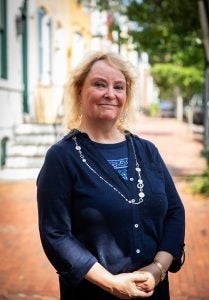
“My daughter went to Stanford and had to take required courses in coding,” Steenhuisen said. “I think she missed something in her education by not being forced to construct a meaning of life and face the questions of evil in the world, so I’ve gotten even more passionate about The Problem of God over the years.”
In Steenhuisen’s class, she pushes students to think critically about forgiveness, how to forgive and the limits and costs that can come with forgiveness.
Above all, Steenhuisen emphasizes that her course “keeps it real” by connecting philosophical and theological questions to the world events and real-life issues her students are grappling with.
Her class also touches on polarizing issues. In the first week of class this semester, Steenhuisen engaged her students in a debate over whether God exists, offering a chance for religious and non-religious students to dialogue with one another from opposing viewpoints.
“We’re a week into the semester, and they feel comfortable being passionate about their beliefs and all leave as friends,” Steenhuisen said. “That may be the first time they’ve had that experience where they can just put it out there and people are listening deeply to what they have to say.”
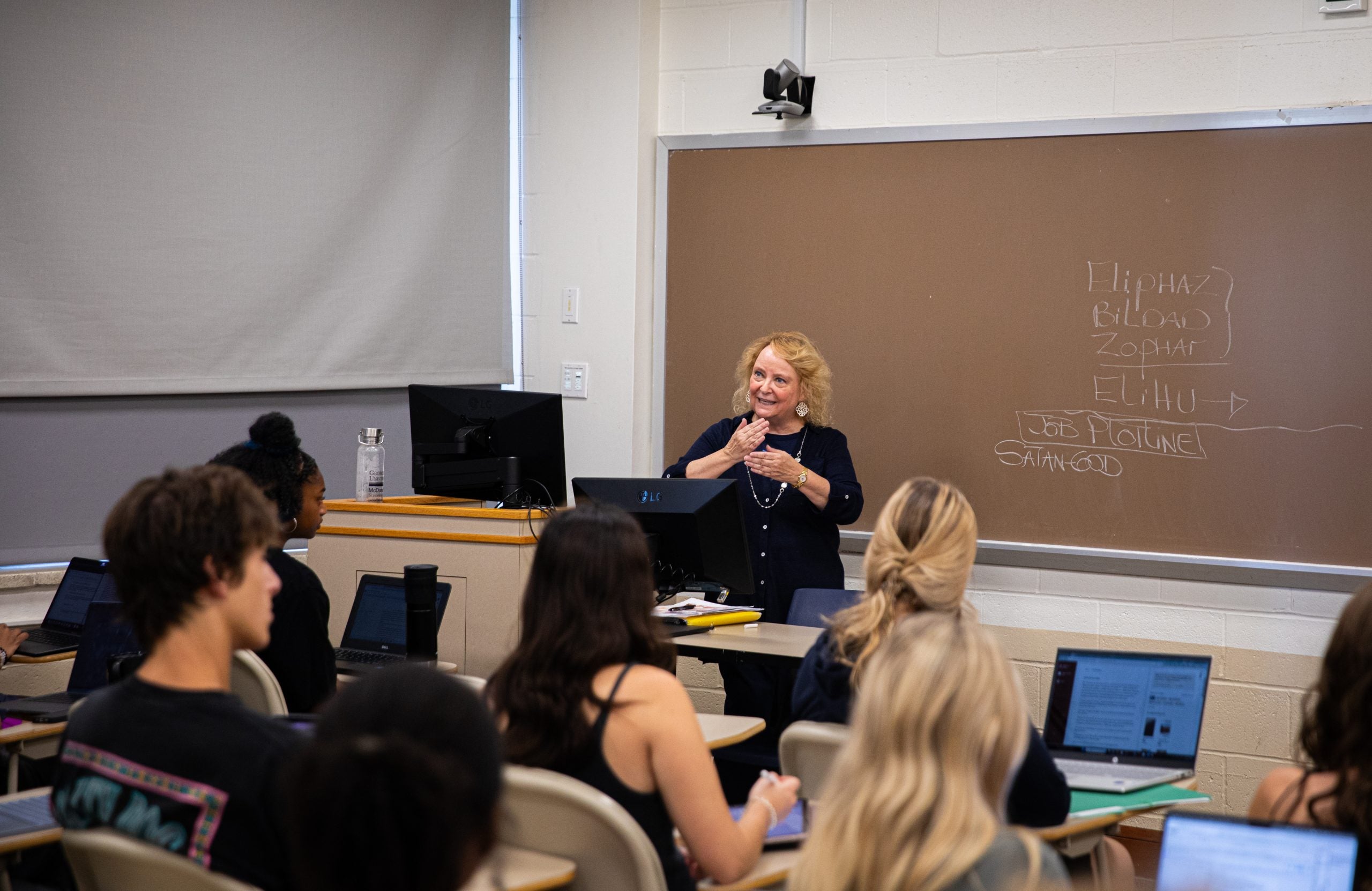
F.B. “Fritz” Brogan III (C’07, L’10) took Steenhuisen’s class two decades ago. He was nervous at first, but found the class challenged him to talk about why he held certain viewpoints while exposing him to new ideas.
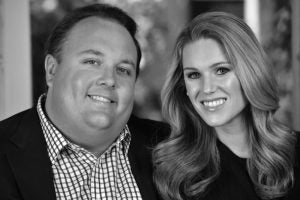
“That’s what Georgetown does best, putting people with different viewpoints in the same room and forcing you to learn from each other and not be in these ideological silos,” said Brogan, who loved Steenhuisen’s class so much he enrolled in her feminist theology course.
At the heart of Steenhuisen’s class is a commitment to foster open dialogue between people from all walks of life. Today, Brogan and his wife, Brooke Brogan (G’19), champion the cause of promoting conversations between people of opposing viewpoints, supporting a new professorship and programming at the McCourt School of Public Policy to promote inclusivity at Georgetown and diversity of thought in public policy.
If there’s one thing Steenhuisen hopes her students walk away with, it’s that they learn to listen and trust their own voices.
“My hope is they have the confidence in their skill to reflect and to trust that voice in themselves,” Steenhuisen said. “We think it’s about the content and [St. Thomas] Aquinas’ proofs, but it’s not about that. It is about developing a way of getting in contact with your inner voice and trusting that.”
